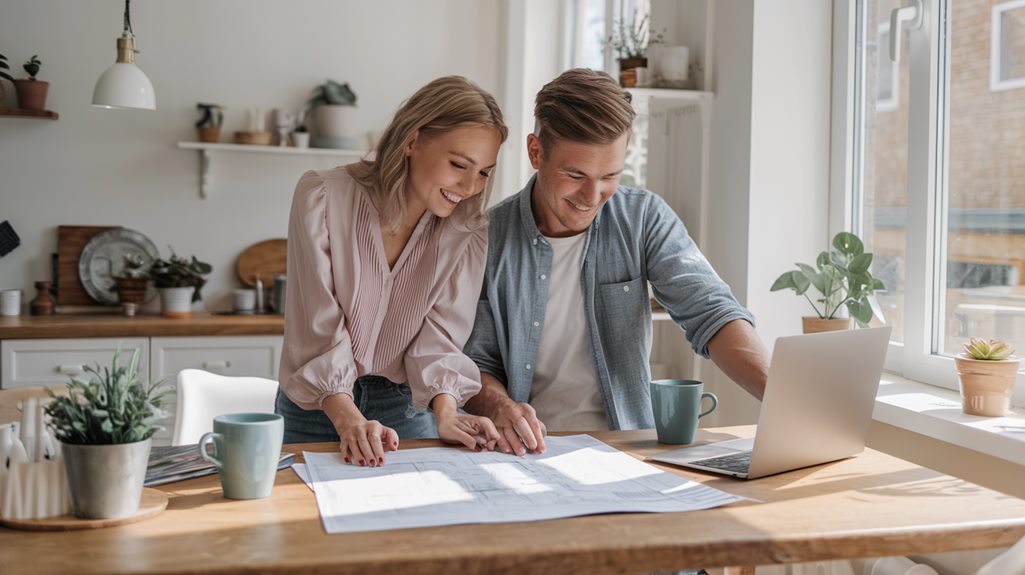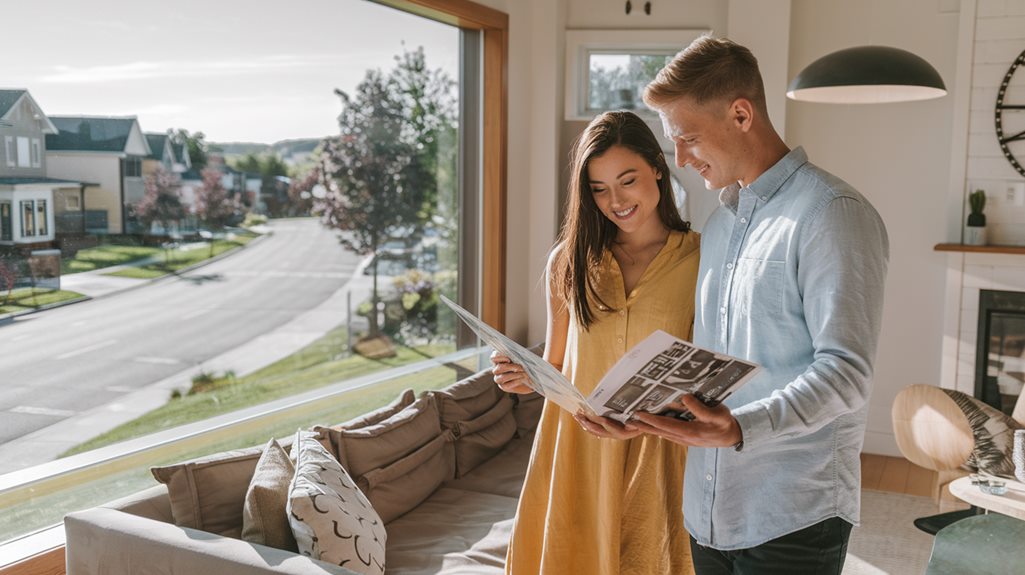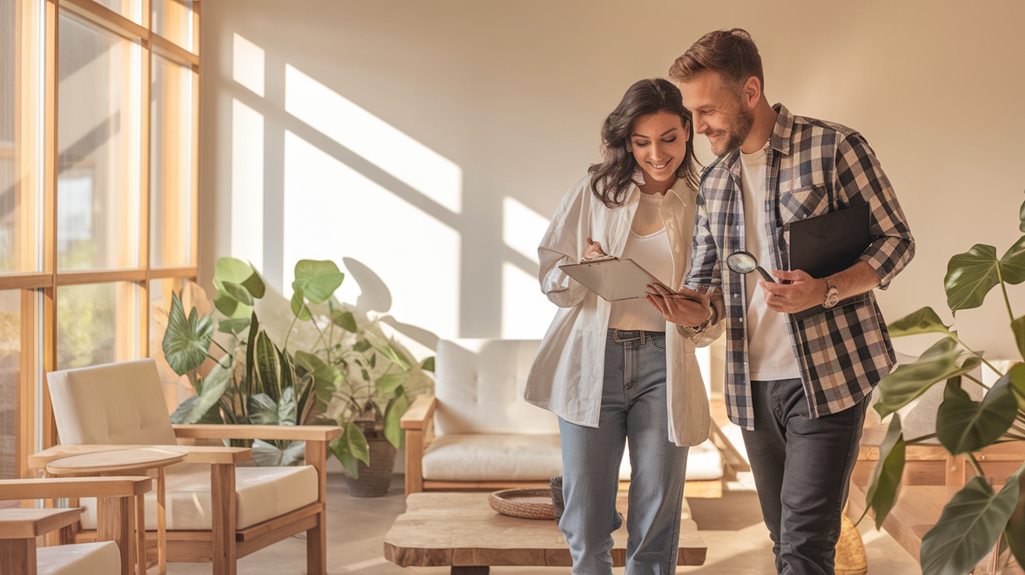Are you thinking about buying your first home? That's exciting! Here are some simple tips to help you.
First, figure out how much money you can spend. Remember to think about all the costs, like the loan, fees, and taxes. Getting pre-approved for a loan can help you look good to sellers, and it lets you know how much money you can borrow.
Next, look at different neighborhoods. Check out schools and parks because they can make a big difference in how much you enjoy living there.
It's also a good idea to find a trustworthy real estate agent. They can give you helpful advice and help with all the papers you need to fill out.
Lastly, make sure to check the house carefully. Look for any problems that could cost you money later.
By following these tips, you'll be on your way to buying your first home. Happy house hunting!
Ready to start building equity in your own Michigan home? Get your personalized home loan quote today.
Determine Your Budget

Making a budget is one of the most important steps when you want to buy your first home. It's like laying the groundwork for your whole journey. Start by looking at different types of mortgages, which are loans for buying homes. Some are fixed-rate, meaning you pay the same amount every month, and others are adjustable-rate, meaning the amount can change.
Think about how each option will affect what you pay each month and how much you'll spend over time.
But don't forget, there are other costs besides just the money you put down to buy the house. You'll also need to think about closing fees, which are payments to complete the sale, and ongoing costs like maintenance and property taxes.
Michigan residents, unlock the door to your new home. Request your home loan quote from Treeside Financial today.
Get Pre-Approved
Getting pre-approved for a mortgage is an important first step when you want to buy a home. It shows sellers that you're serious about buying and helps you know how much money you can spend.
First, check your credit score. It affects the mortgage choices you have. Lenders look at your credit score to decide what loan terms you can get, so having a good score is really important.
Look at different types of mortgages, like fixed-rate or adjustable-rate, to see what works best for you.
Pre-approval also tells you how much you can borrow, so you can look for homes that fit your budget. When you get pre-approved, you become a strong buyer. This helps you make good offers in a busy housing market.
Research Neighborhoods

Once you get a yes for your mortgage, it's time to find a neighborhood that fits your life and future dreams.
If you have kids or want them later, check how good the schools are. Great schools can make the area better and help homes keep their value.
Think about what you need nearby. Are there parks to play in, places to eat, or stores to shop? These things can make your life nicer and make the neighborhood more popular.
Also, look at how home prices are changing. If prices are going up, it means the area is doing well.
Hire a Reliable Agent
Buying a home can be scary, but having a good real estate agent can really help. They know a lot about the market and can help you get the best deal. It's important to find someone who understands what you want and makes you feel comfortable.
A good agent will share information about the local area and help you with all the paperwork. Check how they charge for their work to make sure it fits in your budget. You don't want any surprise costs later on!
Your agent should always have your best interests in mind. They're there to help you find the perfect home while making you feel supported.
Choose carefully, and you'll have a great partner in this exciting adventure!
Inspect the Property

When you're buying a home, it's really important to check the property first. This helps you know if you're making a smart choice.
A good inspection can show you if the house is in good shape. You want your new home to be a happy place, not a problem.
Here are some things to look at:
- Strong Structure: Look at the foundation, walls, and roof. You don't want any big surprises later.
- Safe Electricals: Check the wires and plugs. They should be safe and sound.
- Working Plumbing: Look for leaks and make sure the water pressure is good. This will help you avoid trouble later on.







